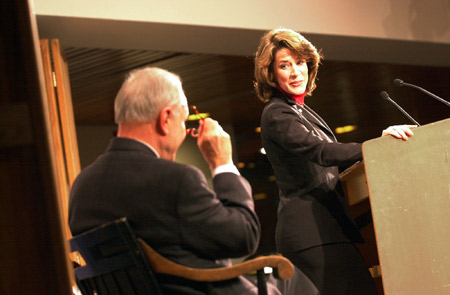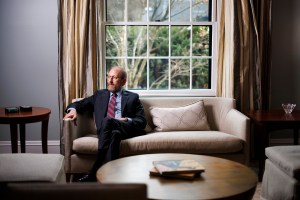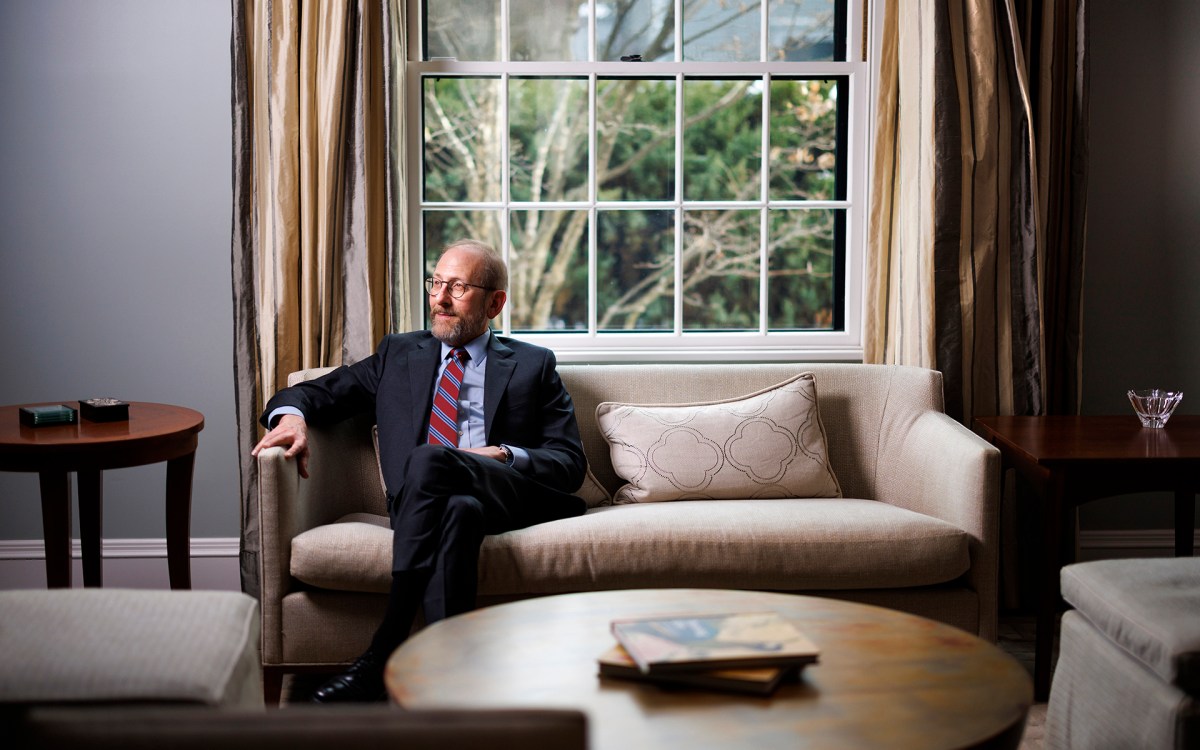Harris goes ‘Beyond Ballots’ at KSG

At the Kennedy School of Government Monday night (Feb. 4), Florida Secretary of State Katherine Harris dodged protestors, deflected attacks, and headed off dimpled chad and makeup jokes to stick to her carefully worded guns.
During Florida’s contested vote count in the 2000 presidential elections, she was, she said, following the law.
Florida has made the best of a bad situation, she added, and now leads the nation in election reform.
What’s more, Harris pointed out, her office goes beyond butterfly ballots to oversee major initiatives in areas as diverse as historic resources and international relations.
Harris, a possible candidate for U.S. Congress, addressed a standing-room-only crowd of supporters and detractors at an ARCO Forum of Public Affairs event co-sponsored by several campus Republican groups. Thrust into the unforgiving spotlight of the media for her role in the 2000 election, Harris shared her discomfort with the notoriety and repeatedly decried “so many urban myths and so many media legends.”
Yet “while the personal attacks … may have been difficult, following the law was very easy,” she said.
Before digging into the meat of her lecture, titled “Beyond Ballots: Florida’s Agenda at Home and Abroad,” Harris briefly defended her decisions regarding Florida’s contested votes in the 2000 presidential election. “My decision reflected my determination to follow the law,” she said, outlining several legal steps she followed. The nation “experienced no constitutional crisis. We simply had a close race.”
Calling the 2000 election a “blessing in disguise,” Harris discussed her state’s successful efforts at much-needed election reform. “We’re no longer the national concern,” she said, “we’re now a national model.”
The secretary of state also outlined the expansive duties of her office, championing its role in cultural development and international trade, particularly to the Caribbean and Latin America.
Yet when the microphones opened, the audience seemed uninterested in the educational achievements of the Tallahassee Boys’ Choir or Florida’s version of the Peace Corps, asking instead about the 2000 presidential elections.
Demonstrating the focused calm of one accustomed to the hot seat, Harris fielded questions about her upcoming campaign for Congress, her refusal to recuse herself from decision making despite her public support of Bush, and her support of the trade embargo to Cuba. “I’m glad you asked that,” she responded to questions both friendly and challenging.
“We believe we conducted the elections with integrity,” she said, citing a lack of evidence of fraud after a year of scrutiny.
Harris, who earned a master’s in public administration at the Kennedy School’s midcareer program in 1997, was a bipartisan cheerleader to students pursuing public service. “There are a lot more important things than having people criticize your makeup,” she said. “I still believe public service is a noble calling. … There are extraordinary public servants on both sides of the aisle who fight very hard every day.”
To a KSG midcareer student who asked Harris how the Kennedy School prepared her, Harris replied, “That could be an all-night dissertation,” adding that the relationships she built at Harvard were even more valuable to her than learning about negotiating or international affairs.
Rose Brayboy, a classmate of Harris’ in the midcareer program of 1997 and fellow Republican, had the last word from the audience, closing a forum that bristled with contention with a supportive tone. “I want you to know that you did the right thing … you came into a broken system,” she told Harris. “I would challenge everyone in this room to go back to their own states and correct the electoral processes.”
For her last word, Harris returned to her main message. “My own safe harbor was to follow the law,” she said.




